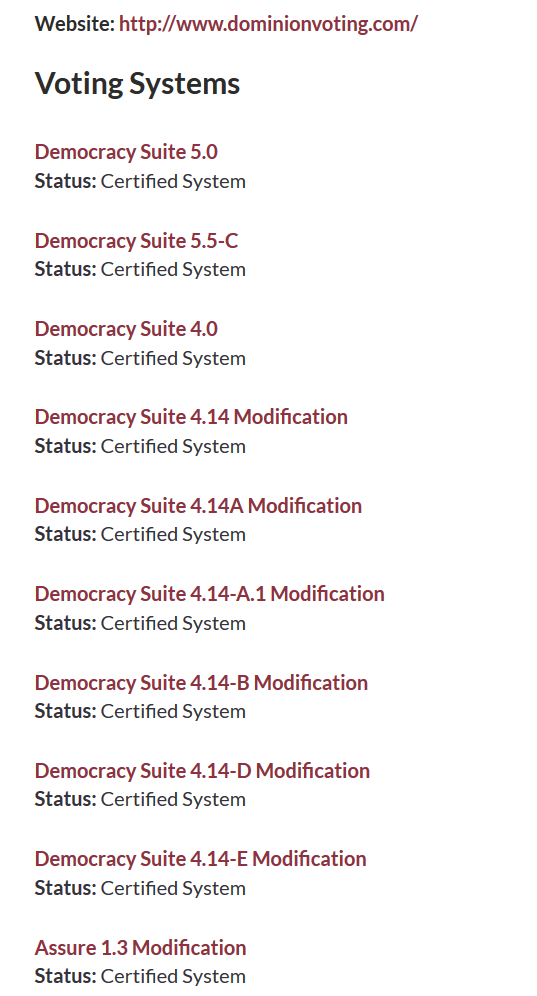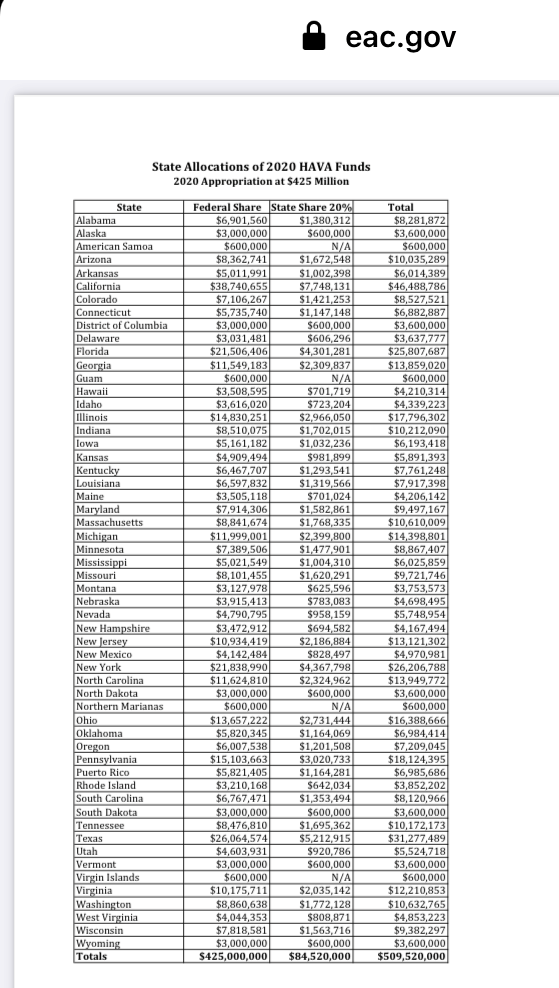
Primer:
In his speech just a few days ago at Georgia Tech University: Pompeo called China’s Communist Party “the central threat of our time” and highlighted efforts by Chinese security services to pressure and recruit Chinese academics and students as spies.
“Americans must know how the Chinese Communist Party is poisoning the well of our higher education institutions for its own ends and how those actions degrade our freedoms and American national security,” Pompeo said.
“If we don’t educate ourselves, if we’re not honest about what’s taking place, we’ll get schooled by Beijing.”
NYP: As we try to come to terms with the extent of Chinese influence over the Biden family, a leaked database of registered members of the Chinese Communist Party has exposed a mass infiltration of American companies — with serious national security implications.
Boeing, Qualcomm and Pfizer are just three US companies that have employed dozens of CCP members in their Chinese facilities, the database reveals.
As well, three female employees of the US consulate in Shanghai have been identified in the list of 1.95 million party members that was leaked to an international group of legislators, the Inter-Parliamentary Alliance on China, which includes Sens. Marco Rubio (R-Fla.) and Bob Menendez (D-NJ).
All CCP members swear an oath to “fight for communism throughout my life, be ready at all times to sacrifice my all for the party and the people, and never betray the party [and] guard party secrets, be loyal to the party.”
Sen. Josh Hawley (R-Mo.), a member of the Homeland Security Committee, said yesterday: “CCP agents have no place in US government facilities, and this report should serve as a much-needed wake-up call to Washington, DC, and corporate executives, who continue to welcome the Chinese government with open arms.
“[It] is just more evidence of the extent to which the CCP has successfully infiltrated American companies and government.”
While none of the people listed in the database have been identified as spies, mounting concerns in the State Department about the CCP have resulted in tightened visa rules for its members earlier this month. CCP members and their immediate families now are limited to one-month, single-entry US permits.
The database was verified by international cybersecurity firm Internet 2.0, which found it was originally leaked on encrypted messaging app Telegram in 2016. It was passed on to IPAC six weeks ago by a third party.
“We have high confidence this list is authentic,” Internet 2.0 co-founder David Robinson, a former Australian army intelligence officer, told me Sunday.
“Someone — an insider, a dissident — managed to get physical access to the server [in Shanghai] from outside the building. They didn’t have to hack it over the internet.”
Each data entry contains the CCP member’s name, ethnicity, place of birth, education level, identification number and, in some cases, a phone number and address.
Robinson has verified the identity of three women who work at the US consulate in Shanghai.
The three, all listed as ethnic Han college graduates, are registered in a 31-strong Communist Party branch listed as Shanghai Foreign Institutional Service Co., which is a state-owned employment agency, which provides local staff for foreign consulates, schools and news media.
A department spokesperson yesterday had no comment about “an allegedly leaked database of Communist Party members” and said “the department does not discuss security protocols or personnel matters.”
However, she said: “Influence and interference operations are fundamental to how the Chinese Communist Party engages with the world.
“China’s role in the world today cannot be understood without reference to the wide array of malign activities that the [CCP] undertakes to influence our societies in ways that are covert, coercive and corrupting.”
The CCP database is split into 79,000 branches.
For example, Boeing has 17 branches, totaling 252 CCP members. Sixteen members are part of Boeing’s Hongqiao Maintenance Base Boeing Line Maintenance Division . . . First Workshop Party Branch; 22 are in the Second Workshop Party Branch; 13 are in the Third Workshop Party Branch, 14 in the Fourth Workshop Party Branch.
There are four subdivisions of the Pudong Maintenance Base Boeing Line Maintenance Branch, totaling 49 members.
Two branches of the Pudong Maintenance Base Boeing Line Maintenance Branch Cargo Aircraft Line Maintenance total 33 members.
Also listed are 27 members of the Party Branch of Boeing Fourth Branch of the Flight Department of Eastern Airlines Yunnan Co. and 23 members of the China Eastern Airlines Beijing Maintenance Department Party Committee Boeing Maintenance Workshop Party Branch.
Boeing spokesman Bradley Akubuiro said last night the company was satisfied with its security.
“As a global company, we enforce strict security protocols and maintain secure firewalls to protect both our customer and company proprietary data in all countries we operate in.”
According to the database, 96 members in the Qualcomm Wireless Communication Technology (China) Co. Ltd. Party Branch, and 133 additional members spread over six party branches of Qualcomm Enterprise Management (Shanghai) work for semiconductor manufacturer and 5G wireless technology company Qualcomm, a US-based multinational.
Qualcomm was awarded a contract by the Defense Department in 2018 to develop multifactor authentication security systems for US military computers.
Another US company crucial to national security is pharmaceutical giant Pfizer, which began rolling out COVID-19 vaccines Sunday.
The database lists 69 CCP members in four Pfizer branches in Shanghai.
Neither Qualcomm nor Pfizer responded to inquiries yesterday.
New York University also appears with 71 members attached to a branch named East China Normal University Shanghai New York University Faculty and Labor Party Branch.
The database leak comes just days after a number of disturbing revelations involving CCP infiltration of American institutions:
Director of National Intelligence John Ratcliffe warned that China has targeted members of Congress and poses “the greatest threat to democracy and freedom” since World War II.
Secretary of State Mike Pompeo warned of China’s infiltration of US universities, which are “hooked on Communist cash” and stifle criticism of Beijing.
Media reports identified Rep. Eric Swalwell (D-Calif.), a member of House Intelligence Committee, as one of several San Francisco politicians courted by Chinese spy Christine Fang.
It was confirmed last week that Joe Biden’s son Hunter is under federal investigation over tax fraud and potential money-laundering over his foreign business dealings, including in China.
“Communist China has been allowed to infiltrate our universities and corporations with people loyal to only the Communist Party,” former Acting Director of National Intelligence Ric Grenell said Sunday.
“Our beloved Chinese American community has been warning us about these tactics for many years, and the political class has ignored those warnings.”
*** 
Sensitive data of around two million members of the Communist Party of China (CPC) have been leaked, highlighting their positions in major organizations, including government agencies, throughout the world.
According to reports from The Australian newspaper, featured in the Economic Times, the information includes official records such as party position, birthdate, national ID number and ethnicity. It revealed that members of China’s ruling party hold prominent positions in some of the world’s biggest companies, including in pharmaceutical giants involved in the development of COVID-19 vaccines like Pfizer and financial institutions such as HSBC.
The investigation by The Australian centred around the data leak, which was extracted from a Shanghai server in 2016 by Chinese dissidents.
It noted that CPC members are employed as senior political and government affairs specialists in at least 10 consulates, including the US, UK and Australia, in the eastern Chinese metropolis Shanghai. The paper added that many other members hold positions inside universities and government agencies.
The report emphasized there is no evidence that spying for the Chinese government or other forms of cyber-espionage have taken place.
In her report, The Australian journalist and Sky News host Sharri Markson commented: “What’s amazing about this database is not just that it exposes people who are members of the Communist Party, and who are now living and working all over the world, from Australia to the US to the UK, but it’s amazing because it lifts the lid on how the party operates under President and Chairman Xi Jinping.
“It is also going to embarrass some global companies who appear to have no plan in place to protect their intellectual property from theft, from economic espionage.”
In September, the Cybersecurity and Infrastructure Security Agency (CISA) and the US Department of Justice issued a joint advisory warning US government agencies and private sector companies to be on high alert for cyber-attacks by threat actors affiliated with the Chinese Ministry of State Security (MSS).







